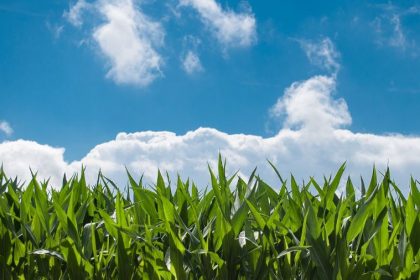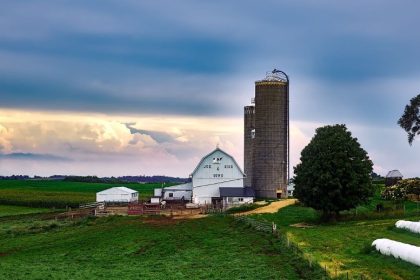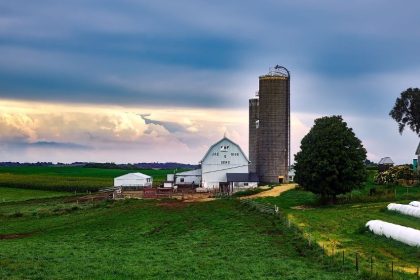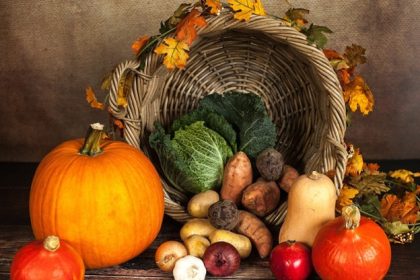IRENA Looks at Decoupling Food Production From Fossil Fuels
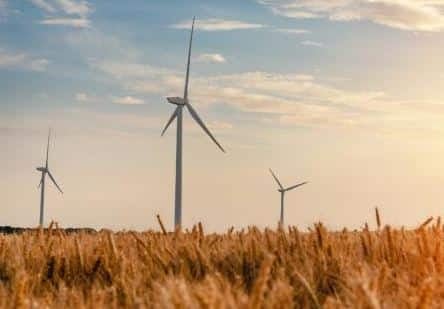
SHARM EL-SHEIKH, Egypt — Among the most well-attended of the panel discussions held last week at the U.N.-sponsored COP27 climate talks was one focused on the challenges of decoupling food production from fossil fuels without diminishing food security.
Held on Friday and co-sponsored by the Abu Dhabi-based International Renewable Energy Agency and the U.N.’s Food and Agriculture Organization, the gathering of experts was a follow-up to the two group’s joint release of their Renewable Energy for Agri-food Systems report at the last climate summit.
Both the report and the follow-up session were carried out in partnership with the International Fund for Agricultural Development.
One of the points driven home at the event was that while most people don’t typically think of it, the reality is agriculture and food production consume about 30% of the world’s energy production, and much of that comes from fossil fuels.
According to the partner organizations gathered at the IRENA pavilion at Sharm El-Sheikh, of the total greenhouse gas emissions stemming from agri-food systems, energy comprises about a third.
In addition, representatives of the organizations said, poor access to energy leads to significant food losses and lower crop yields while hundreds of millions of people still suffer from the health costs of traditional wood energy for cooking.
The Renewable Energy for Agri-food Systems, released at COP26 in Glasgow, Scotland, laid out an action agenda to scale-up investments in renewables in the agri-food sector.
The action plan was subsequently formalized in a joint Energy Compact that was announced at the UN High Level Dialogue on Energy in 2022.
The annual “dialogue” is a meeting of high-level leaders who are working to promote the implementation of various energy-related goals and targets.
The report unveiled in Glasgow included an eight-point action plan emphasizing the need for participating countries to:
- Collect better data to guide renewable energy investments in food systems
- Leverage mapping tools to assess opportunities and inform policy making
- Improve access to finance for end-users and enterprises
- Develop integrated approaches to transforming the food and energy systems
- Mainstream cross-sector perspectives into national sector strategies
- Strengthen innovation for technology and energy efficient appliances
- Focus on raising awareness and building capacity
- Place inclusivity at the heart of transforming the food and energy systems engaging equally women and youth
Last week’s session focused on cross-sector partnerships which are driving both action and investment, and how they can be used to break down silos to mobilize the necessary capital.
One of key points in the action plan was about how to get more investments flowing into nexus solutions, reach last-mile farmers and agri-enterprises, and the greater use of renewables to support their transitions.
In her opening remarks Maria Helena Semedo, deputy director general of the UN’s Food and Agriculture Organization, noted that in many ways, the energy-agriculture nexus touches on every aspect of society, economy and environment, directly or indirectly.
She pointed out that 30% of sub-Saharan Africa has no access to electricity, and that we will not achieve the transition to a renewables-based energy system, with universal access, if every country’s energy sector tries to do it alone.
In fact, she was one of several speakers who noted the importance of taking a holistic approach to the challenge.
Gauri Singh, deputy director-general of IRENA, also pointed out that scaling up the use of locally-available and increasingly affordable renewable energy solutions can be an effective way of meeting growing energy needs in the sector, whether for electricity, heating/cooling or transport.
“In contrast, continuing to rely on fossil fuels to meet energy needs in the agriculture sector brings challenges associated with price volatility and supply shocks, in addition to the steep environmental cost,” she said.
Nicole Iseppi of the Bezos Earth Fund emphasized the need for nature-based solutions, noting that 50% of land globally is used for food production, while one in three people globally face food security issues.
Harish Hande, co-founder of the SELCO Foundation suggested that an ecosystem approach to agriculture is essential.
Singh closed her remarks by expressing hope that by next year’s COP there would be a strong global initiative focused on investments for initiatives at the nexus between food and energy security.
If successful, this will go a long way towards making a climate-safe future, and consigning hunger to the past, she said.
Dan can be reached at [email protected] and at https://twitter.com/DanMcCue


















